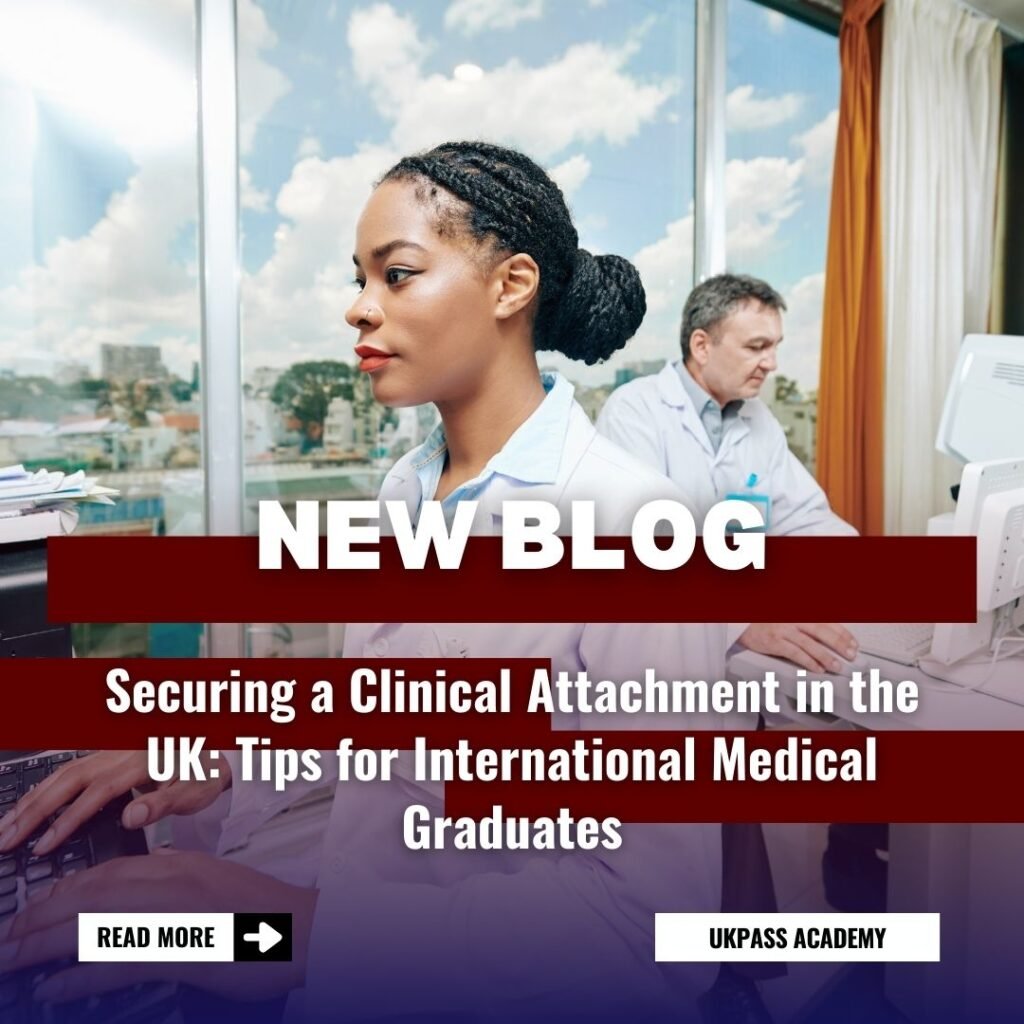For international medical graduates (IMGs) aspiring to work in the UK’s prestigious National Health Service (NHS), the journey can be both exciting and challenging. One crucial step in this process is obtaining registration with the General Medical Council (GMC), which typically involves passing the PLAB 2/UKMLA exam. While this exam is undoubtedly demanding, proper preparation through a dedicated PLAB 2 course can significantly increase your chances of success. Additionally, pursuing a clinical attachment can provide invaluable insights into the NHS work environment, further enhancing your readiness for a seamless transition into the UK healthcare system.
The PLAB 2/UKMLA Exam: A Gateway to GMC Registration
The PLAB 2/UKMLA (United Kingdom Medical Licensing Assessment) is a practical examination that evaluates an IMG’s clinical skills, communication abilities, and data interpretation capabilities. Passing this exam is a mandatory requirement for IMGs seeking GMC registration, which is necessary to practice medicine in the UK.
Preparing for the PLAB 2/UKMLA can be daunting, but enrolling in a reputable PLAB 2 course can significantly improve your chances of success. These courses offer:
– Structured learning: Theory lessons, practical sessions, and mock exams to familiarize you with the exam format and content.
– Experienced instructors: Guidance from professionals who understand the nuances of the exam and can share valuable insights.
– Comprehensive resources: Access to study materials, practice questions, and other learning aids tailored to the PLAB 2/UKMLA.
Choosing the Right PLAB 2 Course
When selecting a PLAB 2 course, consider the following factors:
– Course structure and duration: Ensure the course aligns with your schedule and provides sufficient time for comprehensive preparation.
– Faculty expertise: Opt for a course led by instructors with a proven track record of helping IMGs succeed in the PLAB 2/UKMLA.
– Learning resources: Evaluate the quality and variety of study materials provided, including practice questions and mock exams.
– Course reviews: Read testimonials and reviews from previous participants to gauge the effectiveness of the course.
The Value of Clinical Attachments
While not a mandatory requirement, pursuing a clinical attachment can offer IMGs a unique opportunity to gain hands-on experience within the NHS environment. These attachments allow you to:
– Observe ward rounds and clinical practices
– Develop an understanding of NHS workflows and procedures
– Enhance your communication skills with patients and healthcare professionals
– Familiarize yourself with the NHS culture and work environment
Securing a Clinical Attachment
To secure a clinical attachment, follow these steps:
– Research hospitals offering clinical attachments for IMGs
– Contact the human resources department or consultants for application details
– Prepare the required documents (e.g., police clearance, occupational health checks, language test results)
– Plan ahead and apply well in advance, considering the attachment duration and your PLAB 2/UKMLA timeline
It’s important to note that most clinical attachments require GMC registration or at least passing the PLAB 1 exam. Therefore, it’s advisable to schedule your clinical attachment after completing the PLAB 2/UKMLA to ensure a smoother transition into the NHS workforce.
Costs and Accommodations
While clinical attachments typically involve a fee ranging from a few hundred pounds per month, they provide invaluable learning experiences. Additionally, you’ll need to arrange and pay for accommodations during the attachment period.
– Clinical attachments allow you to:
– Observe ward rounds and clinical practices
– Understand NHS workflows and procedures
– Enhance communication skills with patients and healthcare professionals
– Familiarize yourself with the NHS culture and work environment
– Key steps for securing a clinical attachment:
– Research hospitals offering attachments for IMGs
– Contact human resources or consultants for application details
– Prepare required documents (police clearance, health checks, language tests)
– Plan ahead and apply well in advance
– Most clinical attachments require GMC registration or passing PLAB 1
– Costs involve attachment fees (typically a few hundred pounds per month) and accommodations
Conclusion
Embarking on a career in the NHS as an IMG is an exciting and rewarding journey. By investing in a dedicated PLAB 2 course and considering a clinical attachment, you can equip yourself with the knowledge, skills, and practical experience necessary to navigate the process successfully. Remember, proper planning, perseverance, and a commitment to continuous learning are key to unlocking your professional aspirations within the UK healthcare system.

